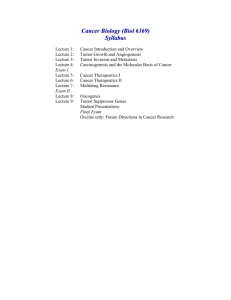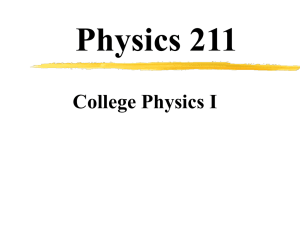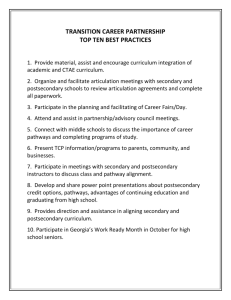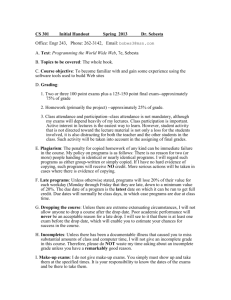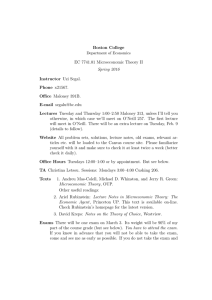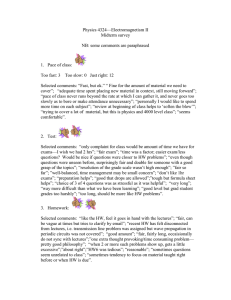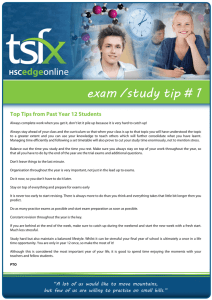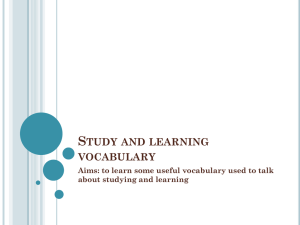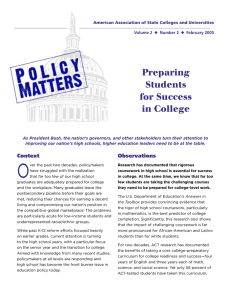Academic Transition between Grade 12 and Post-secondary Secondary School University/College
advertisement
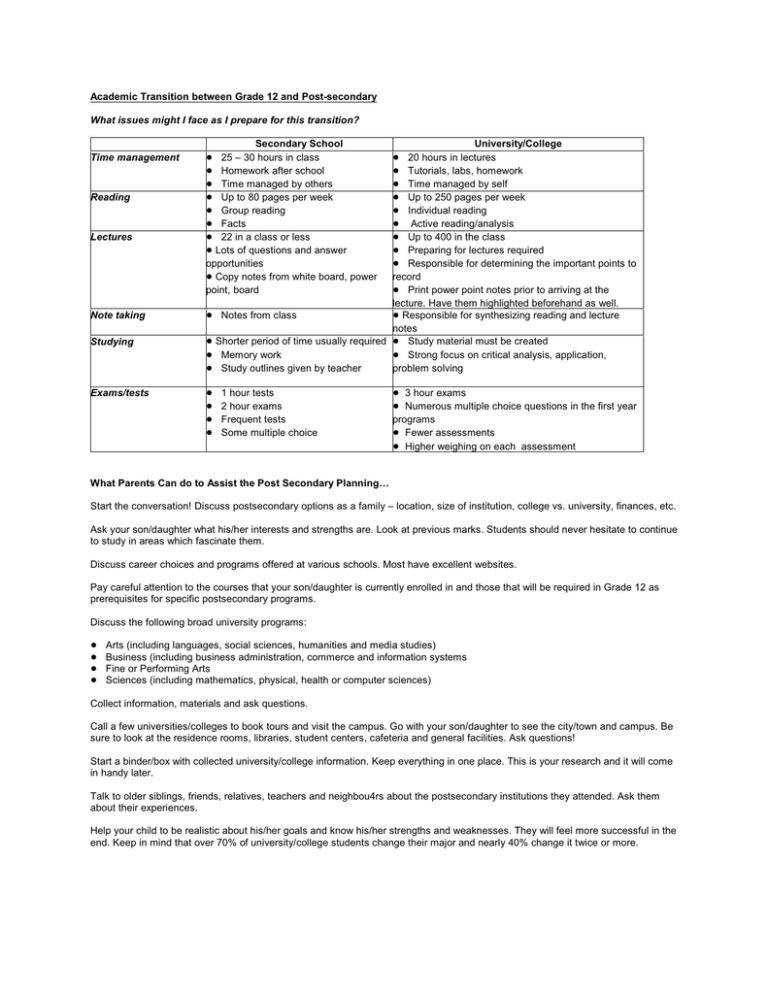
Academic Transition between Grade 12 and Post-secondary What issues might I face as I prepare for this transition? Time management Reading Lectures Secondary School ! 25 – 30 hours in class ! Homework after school ! Time managed by others ! Up to 80 pages per week ! Group reading ! Facts ! 22 in a class or less ! Lots of questions and answer opportunities ! Copy notes from white board, power point, board Note taking ! Studying ! ! ! Exams/tests ! ! ! ! University/College ! 20 hours in lectures ! Tutorials, labs, homework ! Time managed by self ! Up to 250 pages per week ! Individual reading ! Active reading/analysis ! Up to 400 in the class ! Preparing for lectures required ! Responsible for determining the important points to record ! Print power point notes prior to arriving at the lecture. Have them highlighted beforehand as well. Notes from class ! Responsible for synthesizing reading and lecture notes Shorter period of time usually required ! Study material must be created Memory work ! Strong focus on critical analysis, application, Study outlines given by teacher problem solving 1 hour tests 2 hour exams Frequent tests Some multiple choice ! 3 hour exams ! Numerous multiple choice questions in the first year programs ! Fewer assessments ! Higher weighing on each assessment What Parents Can do to Assist the Post Secondary Planning… Start the conversation! Discuss postsecondary options as a family – location, size of institution, college vs. university, finances, etc. Ask your son/daughter what his/her interests and strengths are. Look at previous marks. Students should never hesitate to continue to study in areas which fascinate them. Discuss career choices and programs offered at various schools. Most have excellent websites. Pay careful attention to the courses that your son/daughter is currently enrolled in and those that will be required in Grade 12 as prerequisites for specific postsecondary programs. Discuss the following broad university programs: ! ! ! ! Arts (including languages, social sciences, humanities and media studies) Business (including business administration, commerce and information systems Fine or Performing Arts Sciences (including mathematics, physical, health or computer sciences) Collect information, materials and ask questions. Call a few universities/colleges to book tours and visit the campus. Go with your son/daughter to see the city/town and campus. Be sure to look at the residence rooms, libraries, student centers, cafeteria and general facilities. Ask questions! Start a binder/box with collected university/college information. Keep everything in one place. This is your research and it will come in handy later. Talk to older siblings, friends, relatives, teachers and neighbou4rs about the postsecondary institutions they attended. Ask them about their experiences. Help your child to be realistic about his/her goals and know his/her strengths and weaknesses. They will feel more successful in the end. Keep in mind that over 70% of university/college students change their major and nearly 40% change it twice or more.

